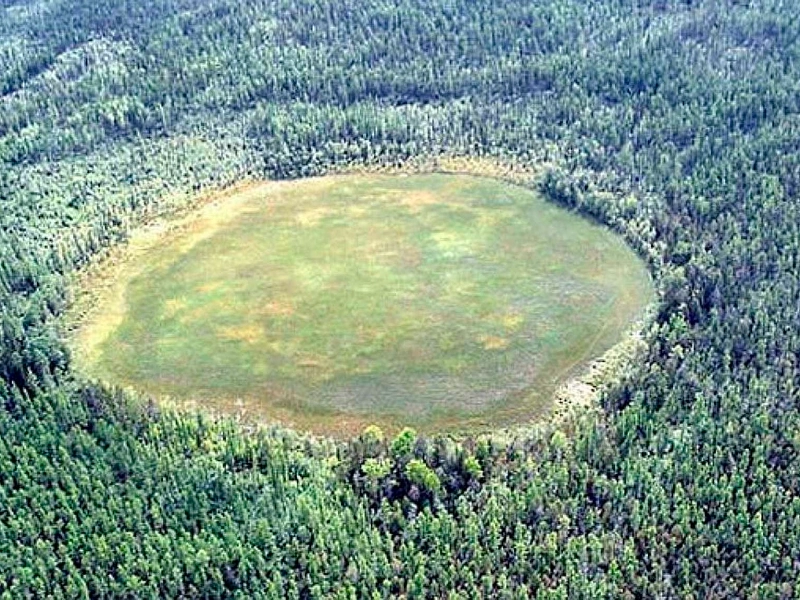Space Rocks That Rocked Our World: 10 Meteors You Won't Believe Actually Hit Earth!
Advertisement
7. The Tunguska Event

Advertisement
Although not a classic meteorite, the Tunguska event merits attention for its effects on Earth. Thought to be caused by a comet or asteroid, the enigmatic explosion in Siberia in 1908 crushed over 80 million trees and left a lasting mystery. The spectacular character of the Tunguska event and the later research have given important new perspectives on the dynamics of airburst events and the possible threats presented by near-Earth objects.
Around the Podkamennaya Tunguska River in Siberia, Russia, the Tunguska event took place on June 30, 1908. Witnesses said they saw a brilliant blaze followed by a sequence of loud explosions and a strong shockwave flattening an estimated 2,150 square kilometres (830 square miles). One of the most strong natural explosions in recorded history, the explosion is thought to have spewed energy equal to 10–15 megatons of TNT. The event was not immediately explored because of the distant location and political unrest in Russia at the time, but later trips in the 1920s and 1930s exposed the degree of the damage.
Still up for contention and conjecture is the origin of the Tunguska incident. According to the most generally accepted hypothesis, the airburst of a comet or asteroid broke apart at an elevation of roughly 5–10 kilometres (3–6 miles) above the surface of the Earth. Scientists have speculated that the object was made of ice or a delicate, loosely bonded substance that vaporised upon hitting the Earth's atmosphere based on the absence of an impact crater and notable meteoritic debris. The dispersion of the explosion effects and the noted pattern of tree damage corroborate this idea.
The Tunguska event has given important new perspectives on the mechanics of airburst events and the possible risks related to near-Earth objects. Research of the event has helped us to better grasp thermal effects connected with high-altitude explosions, shockwave propagation, and energy release. The Tunguska catastrophe has also underlined the need of tracking and identifying possibly dangerous asteroids and comets as well as of creating plans for reducing the hazards related to their collision.
Apart from its scientific relevance, the Tunguska event has grown to be a cultural and historical mystery. Inspired by the occurrence, many people all around have produced books, films, and fictitious works. The remote and enigmatic character of the Tunguska catastrophe has also spawned several other hypotheses and speculations ranging from extraterrestrial involvement to strange physical events. These ideas reflect the ongoing fascination with the Tunguska event and its effects on human civilisation even if they lack scientific basis.
Furthermore helping to advance the topic of planetary defence is the Tunguska occurrence. The analysis of the event has given important information for evaluating the possible hazards connected with near-Earth objects and simulating the consequences of airburst events. Thus, the Tunguska catastrophe has helped to create plans for tracking, identifying, and reducing the hazards presented by comets and hazardous asteroids so safeguarding our world from future strikes.
Finally, the Tunguska event serves as a sobering warning of the possible risks associated with near-Earth objects and airburst dynamics. Its enigmatic character, great damage, and further research have given important new perspectives on the mechanisms influencing high-altitude explosions and the hazards connected with near-Earth objects. The Tunguska incident reminds us of the strong forces at work in the universe and the need of awareness in tracking and reducing the hazards related with space rocks as we keep exploring the secrets of the cosmos.
Advertisement
You May Like

